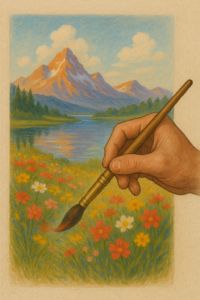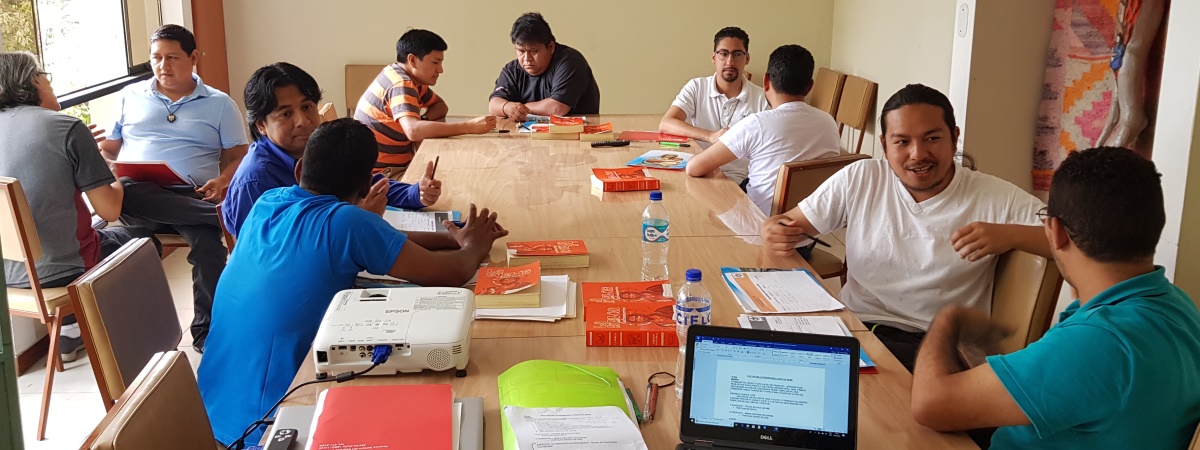10.1 Emmaus
Closing Dynamic: “Returning to Jerusalem as Instruments of the Heart”
Objective: To help the new MSC provincials integrate the experience of the Ad Limina program, discern what they carry in their hearts as they return to their entities, and embrace this return with humility, availability, and mission. The dynamic is inspired by the Spirituality of the Heart and Anthony de Mello’s parable of the paintbrush.

1. Brief Introduction
“Dear brothers, like the disciples on the road to Emmaus, we too have walked together these past days. We’ve shared the table, we’ve felt our hearts burning within us. And like them, it is now time to return to Jerusalem — to our communities, to our mission, to the encounter with our confrères.
But we do not return the same. Something in us has been transformed. This moment is an opportunity to contemplate that transformation, to listen to what the Spirit is whispering, and to prepare our hearts for the road ahead. I invite you to do so with openness, with truth, and with gratitude.”
2. Personal Reflection: “With what kind of heart do I return to Jerusalem?”

“Yesterday we evaluated the program, the content, and the learning. Today, I propose something different: a moment to look inward. It’s not about assessing what was done, but about contemplating what God has done within us.”
Questions for silent reflection:
- What has changed in me as a leader during this time?
- What feelings accompany me as I prepare to return to my entity?
- What is the Spirit whispering to me for this new stage of my service?
- What image represents how I lead today? A lamp? A staff? A paintbrush?
- How do I make myself available to be an instrument for what God wants to paint through my life?
(Suggestion: Provide a handout with these questions, perhaps illustrated with a brush or heart outline.)
3. Emmaus Walk
“I now invite you to go out in pairs for a short walk, like the disciples of Emmaus. You may choose to share what you have discovered in silence. Listen to one another with your heart. This is not a functional conversation — it is a sacred moment.”
Guiding questions for the walk:
- What fire do I carry in my heart as I return to my community?
- Where is the Spirit calling me to be an instrument of hope and communion?
4. Return to the group and closing with the parable of the paintbrush

Brief silence once everyone returns. Then introduce the story:
“Thank you for walking, listening, and allowing yourselves to be transformed. I now want to share a short parable that might help us make sense of all we’ve lived through — from a different perspective.”
Anthony de Mello’s Parable: The Paintbrush
A disciple once asked the master:
—Master, are you happy with what you do?
—Yes —replied the master—. I am as happy as the paintbrush is when it paints.
—The paintbrush? —asked the disciple.
—Yes —said the master—. The brush does not choose its path. It does not pick the colors. It does not decide the shape or the style. It simply lets itself be guided by the hand of the artist.
—And that is enough?
—Of course it is —said the master—. The paintbrush does not need to know what is being painted. It only needs to know that it is in good hands.
Final words:
“Let us return to our personal Jerusalems with this same availability. May the Heart of Jesus take us as instruments, so that we may continue to trace —with humility and passion— the work of compassion in this world. Thank you for walking together. Thank you for saying yes.”

